Broad Spectrum CBD Oil, Capsules, Edibles: Definition & Benefits
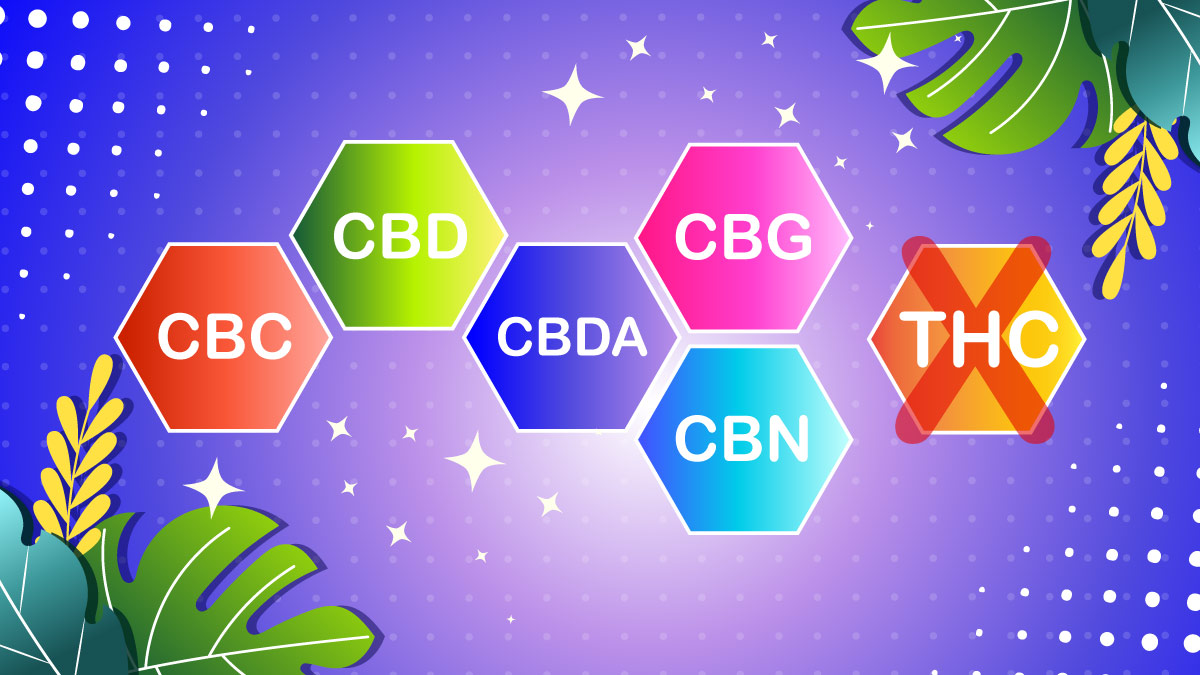
If you’ve purchased CBD before, you may have noticed some are labeled as full-spectrum; others are broad-spectrum, or CBD isolate.
So, what does this mean?
In short, broad-spectrum CBD contains all the cannabinoids except for THC, but there’s far more to it than that.
If you’re still confused about what broad-spectrum means, how it’s used, and whether or not it’s the right CBD for you, read on to get your questions answered.
What is Broad Spectrum CBD Oil?
Broad-spectrum CBD oil, similar to full-spectrum CBD oil, contains CBD and a wide range of other cannabinoids and terpenes.
Unlike full-spectrum, broad-spectrum CBD contains no traces of THC.
Broad-spectrum CBD oil is excellent for people that want the benefits of a full-spectrum product without any THC.
When using a full-spectrum product, you run the risk of showing up positive on a drug test even though the percentage of THC is under 0.3%. With a broad spectrum product, there’s virtually no risk at all.
Benefits of Broad Spectrum CBD
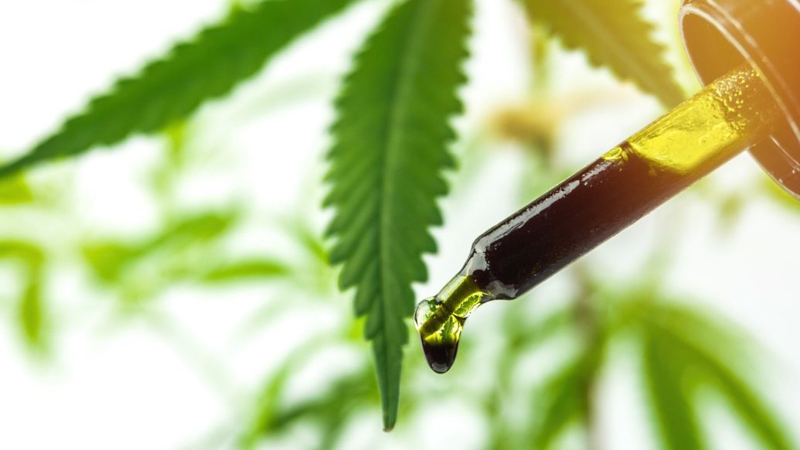 When CBD is consumed, it can affect bodily functions in many different ways.
When CBD is consumed, it can affect bodily functions in many different ways.
When broad-spectrum CBD is consumed, a wide range of other cannabinoids also affects the body.
CBD and other cannabinoids present in broad-spectrum CBD interact with CB1 and CB2 receptors in the endocannabinoid system [1]. This signaling system is responsible for many functions within the body.
When these cannabinoid receptors are activated, several benefits may occur:
1. CBD Blocks Pain
CBD is renowned for its pain-relieving qualities.
People that suffer from chronic pain can benefit from CBD for this reason.
CBD can be consumed orally or used in the form of a topical to ease joint pain and sensitive skin directly at the source.
As one study suggests, using a wide range of cannabinoids is the best way to relieve pain symptoms [2].
Although pure CBD isolate is an effective pain-reliever, broad-spectrum CBD is far more effective due to the cannabinoids working together (the entourage effect).
2. CBD is an Anti-inflammatory
CBD has anti-inflammatory qualities.
Studies have discovered that when full- and broad-spectrum CBD is used in oral and topical forms, it can work as an anti-inflammatory [3].
Scientific and anecdotal research shows that CBD can reduce inflammation for a variety of conditions. Potential conditions it may help are psoriasis, dermatitis, eczema, acne, and more.
3. CBD May Prevent Nausea
Broad Spectrum CBD may prevent nausea.
Although there’s limited scientific evidence to prove this, patients suffering from nausea-related side effects from other medications have been using CBD to ease the symptoms for years.
It‘s especially popular with cancer patients looking to ease the side effects of invasive cancer treatments such as radiotherapy and chemotherapy.
4. CBD Has Neuroprotective Properties
The endocannabinoid system plays a huge part in the modulation of neurotransmitters. CBD interacts with the CB1 and CB2 receptors of the endocannabinoid system, suggesting an effective treatment for neurological disorders.
There has been a lot of research into the neuroprotective benefits of CBD in epilepsy and multiple sclerosis patients.
One particular study found evidence that CBD and other cannabinoids reduce spasms in multiple sclerosis patients [4].
Although most of the evidence does suggest THC has the most promising effects on neurological disorders, broad-spectrum CBD has great potential as a neuroprotector.
5. CBD Aids Mental Health
CBD is popular among people with anxiety, severe stress, depression, and SAD (seasonal affective disorder).
One study, in particular, looked into the effects of CBD when administered to people with SAD [5]. People with the disorder tend to suffer from anxiety, stress, and depression during the winter months due to light and weather changes.
6. CBD Has Many More Benefits…
CBD has many health benefits; some backed by science and some backed by personal experiences.
Research into CBD’s effects on certain conditions is limited. However, there’s a list of conditions with a large amount of scientific or anecdotal research into the effects CBD has on them.
Here are just a few other conditions people are using broad-spectrum CBD oil to support:
- Asthma
- Arthritis
- Diabetes
- Obesity
- High blood pressure
- Mental health disorders
- Addiction & withdrawal
- Insomnia
- Varied skin conditions
- Epilepsy
- Cancer
How to Use Broad Spectrum CBD?
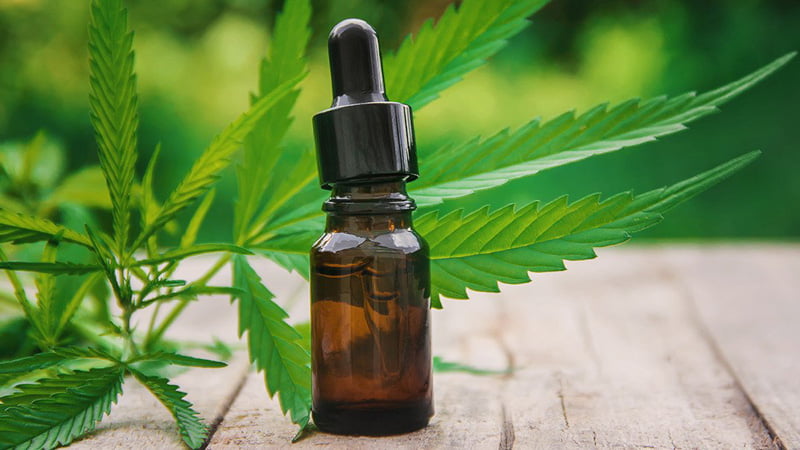
There are many ways to consume and use broad-spectrum CBD.
How you use CBD is entirely down to you. What works for some may not work for others, so knowing what the options are along with their strengths and weaknesses is key.
1. Broad Spectrum CBD Oil
Broad-spectrum CBD oil is easily accessible and one of the best ways to consume CBD.
It’s taken via an eye-dropper and administered under the tongue. Drops of oil can also be added to food and drink as a supplement.
CBD oil gives you ultimate flexibility over your dosage.
You can control how much CBD you’re taking by simply adjusting how many drops you administer under the tongue or in your food.
2. Broad Spectrum CBD Capsules
CBD capsules come in dry forms and softgels. Both types provide you with a tasteless and accurate way to consume CBD.
You take them as you would with any supplement — swallowing with water.
If you’re looking for a hassle-free way to consume CBD with zero taste and zero sugar accurately, capsules are perfect.
3. Broad Spectrum CBD Edibles
CBD edibles are available in many forms.
They’re great if you can’t stand the taste of raw CBD oil and prefer medicating in a more relaxed and seemingly ordinary way.
Edibles such as gummies have an accurate dose of CBD per piece. They give you a controlled way to consume the cannabinoid, and you can monitor how much you’re taking very easily.
Bear in mind that most edibles contain sugar. This is not great if you’re looking to use CBD to lower blood sugar levels or lose weight.
4. Broad Spectrum CBD Vaporizers
CBD vaporizers use a CBD extract suspended in vegetable glycerin, propylene glycol, and flavorings.
The liquid is vaporized and inhaled so the CBD can be absorbed through the lung tissue and into the bloodstream.
CBD is extremely bioavailable when vaporized. The cannabinoid is absorbed quickly and efficiently through the lung tissue. From here, it interacts with the CB1 and CB2 receptors in the body’s endocannabinoid system.
There are some possible health risks with using CBD in this way. Research is limited, but there’s a possibility that inhaling vapor is harmful to the lungs.
If you suffer from a respiratory condition such as asthma, it’s not advisable to use CBD in this way.
5. Broad Spectrum CBD Topicals
CBD topicals are applied to the skin rather than ingested orally or inhaled.
Creams, balms, and gels are common, but bath bombs, soaps, and roll-ons can also be acquired.
If you’re suffering from an inflammatory skin condition such as eczema, psoriasis, or acne, CBD topicals are excellent.
Applying CBD directly at the source can reduce irritation, inflammation, and pain.
Broad Spectrum CBD Oil: How It’s Made?
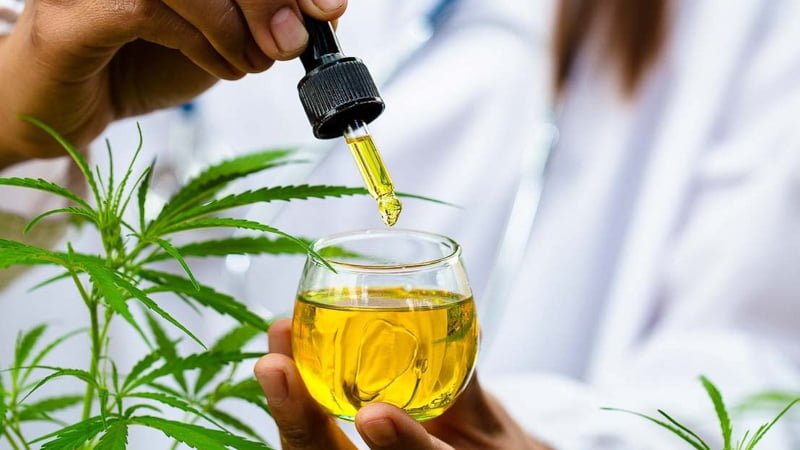 There are many ways to extract cannabinoids from the hemp plant.
There are many ways to extract cannabinoids from the hemp plant.
Most manufacturers use CO2 or ethanol extraction. These processes are considered safe when performed correctly and leave minimal chemical residues in the final product.
A final step is needed to remove the THC from the extraction fully. This process is called flash chromatography.
Let’s take a look into what each process entails:
1. CO2 Extraction
CO2 extraction is one of the best ways to extract CBD and other cannabinoids from hemp flowers. There’s little risk of leaving behind harmful residues in the final product when this process is done correctly.
Super-cold CO2 is held under high pressure and blasted through organic matter (like raw hemp).
As the CO2 is blasted through the hemp, the cannabinoids and terpenes are dissolved and collected as a liquid.
From here, the excess liquid is evaporated to leave behind a highly-concentrated CBD oil with a full cannabinoid profile (including THC).
2. Ethanol Extraction
When CBD is extracted with this method, high-proof pure alcohol is used.
The organic plant material from hemp is suspended in the alcohol for a certain amount of time. This releases the cannabinoids, terpenes, and other oils from the material.
The plant material is strained off to leave behind a liquid that’s infused with CBD and other cannabinoids (including THC).
Once the liquid is separated from the organic material, the excess liquid is evaporated to leave behind a highly-concentrated full-spectrum oil.
3. Flash Chromatography
Flash chromatography is the process used to isolate and remove the THC from the extract.
This process is complicated and requires extensive knowledge and skill in chemistry. Most manufacturers will not release this information, so it’s difficult to explain the process step by step.
What we do know is specific solvents are used to isolate and remove the THC from the extract. The process is prolonged and may require multiple “washes” to remove all traces of THC.
The process can remove some other cannabinoids alongside the THC, and the CBD content may be lowered during the process.
Although broad-spectrum CBD does contain a full cannabinoid profile (excluding THC), it doesn’t have the same cannabinoid percentages as full-spectrum CBD.
Does Broad Spectrum CBD Show up on Drug Tests?
The drug tests screen for the THC cannabinoid.
CBD and other cannabinoids are not screened for, so if you’re using a truly broad-spectrum CBD oil with no traces of THC, you will not test positive on a drug test.
If you’re concerned about testing positive on a drug test and want to use CBD, using a broad spectrum is a great choice. Unlike CBD isolate, you still get the entourage effect to some degree without the THC.
Although broad-spectrum CBD oil shouldn’t contain any trace amounts of THC, it’s important to check lab-test results to be certain, especially if your job requires routine drug tests.
Is Broad Spectrum CBD Better Than Isolate & Full-Spectrum CBD?
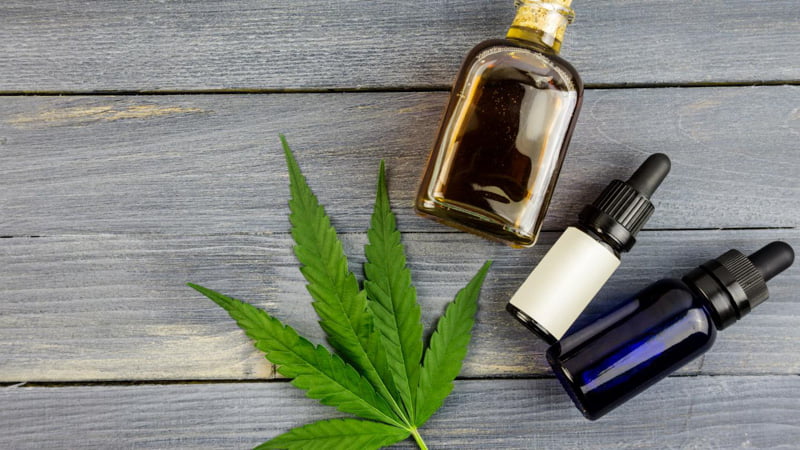 Full-spectrum CBD is considered the most valuable CBD for a wide range of health conditions due to the full entourage effect.
Full-spectrum CBD is considered the most valuable CBD for a wide range of health conditions due to the full entourage effect.
CBD is far more effective when combined with all the other cannabinoids present in the hemp plant, including THC.
That being said, broad-spectrum CBD is still incredibly effective at treating a range of health conditions.
You still benefit from the entourage effect to some degree because although broad-spectrum CBD is THC-free, it does contain a wide cannabinoid profile.
Compared to CBD isolate (pure CBD without any other cannabinoids present), broad-spectrum CBD is worlds apart. CBD isolate is great for people who react badly to other cannabinoids, but you don’t benefit from the entourage effect.
Comparing CBD Extract Types
- Full-spectrum CBD comes in first because it provides the best cannabinoid profile.
- Broad-spectrum CBD comes in second place because it provides a good cannabinoid profile minus the THC.
- CBD Isolate comes in third because you do not benefit from the entourage effect.
Although we‘ve ranked the three types of CBD in terms of effectiveness, this doesn’t mean one is better than the other.
Some people can’t consume any THC due to regular drug screening or a negative reaction to the cannabinoid; in these cases, broad-spectrum is best.
Others react badly to a wide cannabinoid profile; in this case, CBD isolate is better.
Where Can You Buy Broad Spectrum CBD?
CBD is extremely accessible. Finding broad-spectrum CBD products in the United States and Europe is easy.
You can source broad-spectrum CBD oil and other products from dispensaries, health stores, and selected supermarkets.
However, the best way to source your CBD is online.
Purchasing CBD directly from the supplier cuts out the middleman. You’re guaranteed to get exactly what you came for and can look at lab reports as well as detailed descriptions of each product.
Buying online can save you money too.
Most CBD manufacturers offer discounts on monthly subscriptions, first-time buy offers, and seasonal discounts.
Does Broad Spectrum CBD Get You High?
Broad-spectrum contains no THC (the psychoactive compound in cannabis). Because of this, there is no chance of getting high. You will receive all the health benefits of the other cannabinoids without the psychoactive effects.
It’s worth mentioning that even though full-spectrum CBD does contain trace amounts of THC, it also doesn’t get you high.
To abide by federal laws, CBD products must contain less than 0.3% THC. This is far too little to have an impairing effect.
Final Thoughts: Is Broad Spectrum CBD Oil Worth Your Time?
Broad-spectrum CBD is definitely worth your time.
It contains a full cannabinoid profile without the THC, so if you’re worried about regular drug screening, it’s the perfect option.
It’s also perfect for hypersensitive to THC but not the other cannabinoids present in hemp.
If you fit either one of the statements above, broad-spectrum CBD is the right choice for you.
References Used In This Article
- Pacher, P., Bátkai, S., & Kunos, G. (2006). The endocannabinoid system is an emerging target of pharmacotherapy. Pharmacological Reviews, 58(3), 389-462.
- Russo, E. B. (2008). Cannabinoids in the management of difficult-to-treat pain. Therapeutics and clinical risk management, 4(1), 245.
- Atalay, S., Jarocka-Karpowicz, I., & Skrzydlewska, E. (2020). Antioxidative and anti-inflammatory properties of cannabidiol. Antioxidants, 9(1), 21.
- Flachenecker, P., Henze, T., & Zettl, U. K. (2014). Nabiximols (THC/CBD oromucosal spray, Sativex®) in clinical practice-results of a multicenter, non-interventional study (MOVE 2) in patients with multiple sclerosis spasticity. European neurology, 71(5-6), 271-279.
- Crippa, J. A. S., Derenusson, G. N., Ferrari, T. B., Wichert-Ana, L., Duran, F. L., Martin-Santos, R., … & Hallak, J. E. C. (2011). Neural basis of anxiolytic effects of cannabidiol (CBD) in generalized social anxiety disorder: a preliminary report. Journal of psychopharmacology, 25(1), 121-130.
- Crippa, J. A. S., Derenusson, G. N., Ferrari, T. B., Wichert-Ana, L., Duran, F. L., Martin-Santos, R., … & Hallak, J. E. C. (2011). Neural basis of anxiolytic effects of cannabidiol (CBD) in generalized social anxiety disorder: a preliminary report. Journal of psychopharmacology, 25(1), 121-130.